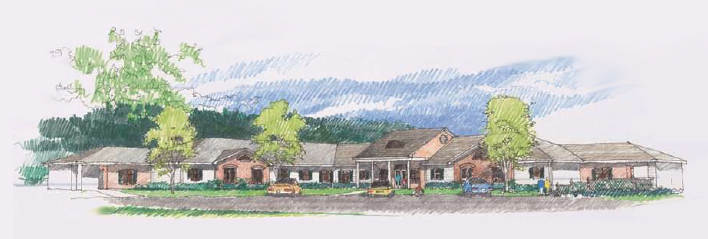Meridian will be the site for Mississippi’s third apartment complex custom designed for wheelchair users.
Mississippi Methodist Accessible Housing, Inc. (MMAH) has announced plans to build Miller Park, a 17–unit complex at the corner of 29th Avenue and 52nd Street. The apartments will feature lowered light switches, raised electrical outlets, wider doorframes, kitchens with roll-under space at the sink and stove and fully accessible bathrooms.
“Research indicates a growing need for this type of housing throughout the state,” said Steve Hope, MMAH president. “There are many disabled Mississippians who are independent enough to live on their own if the right kind of housing is available.”
MMAH — a not-for-profit corporation sponsored by Methodist Rehabilitation Center in Jackson — secured a more than $1.2 million grant from the U.S. Department of Housing and Urban Development to fund the Meridian complex. It is named in honor of Dean Miller, a former chairman and lifetime member of the Methodist Rehab board of trustees.
“Working with HUD, we’ve been able to make good on our mission to increase housing options for Mississippians with disabilities,” Hope said. “Before we opened Webb Park in Jackson in 2001, many people in wheelchairs simply made do by modifying existing housing. Our residents tell me they truly enjoy being in a setting where the accommodations aren’t an afterthought.”
When Methodist Rehab saw how quickly Webb Park’s 19 units filled, a second complex was planned for south Mississippi. Fifteen-unit Wofford Park opened in Hattiesburg in February, 2006.
Hope said Meridian got the nod for the next complex site by virtue of its growing population and quality health care. “Methodist Rehab recently opened an orthotics and prosthetics clinic in Meridian, so the center is familiar with the needs of the community,” he said. Hope projects the complex will be completed by the summer of 2008.
Residents will be chosen via an application process. “Residents are typically people who use a wheelchair because of an amputation or a brain or spinal cord injury,” Hope said. Rental rates will be based on a person’s ability to pay.
While most of the apartment’s amenities will be readily apparent — such as lowered security peepholes and the absence of stairs — another advantage of living at the complex might not be noticed until everyone settles in, said Mark Adams, president and CEO of Methodist Rehab.
“We’ve found that a true sense of camaraderie often develops among the residents,” Adams said. “The complex gives them a sense of community, well-being and independence.”

